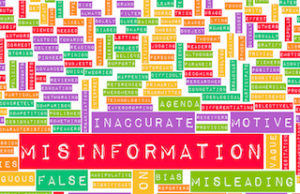

Recently I wrote about how technology was being employed by several major carriers to facilitate underwriting models that do not call for traditional paramedical exams. Such “no-exam” product offerings are becoming, less a novelty, and more the norm.
While, like any change, streamlining the life insurance process is disruptive to certain elements (like paramedical vendors), this streamlining is on balance a positive development. Anything that makes it easier to for people to protect their family and doesn’t bankrupt the carriers is a good thing from my perspective.
However, one can have wholehearted support for making the process easier for the consumer, and have some reservations about the marketing practices being employed.
Major carriers are offering direct application services online
Although growing in scope, this development is nothing new; carriers have sought to market directly to consumers for years. While this grates on independent agents who write the overwhelming portion of business for these carriers, there is nothing unethical about having multiple, and sometimes competing, distribution channels.
Several big name carriers, Sagicor being the most recent, are making a significant push to be less reliant on independent brokers. This should not be surprising to anyone. Consumers have become more adept at using technology to shop for everything from diapers to automobiles. It is only common sense that insurance carriers would seek to capitalize on the trend.
Questionable marketing tactics
The combining of technology-driven, streamlined processes and a consumer direct platform would seem a marriage made in corporate heaven. After all, using “in house” agents to cut expenses and being able to micro-target consumers with a scalable online advertising platform is hard to argue with as a business plan.
The marketing content is where things get dicey. See, the carriers can’t come out and say that your insurance will be less expensive this way, because it’s not. Insurance rate schedules are approved by the Department of Insurance in respective states. Therefore, regardless of who sells you a policy of like terms – an independent agent or the carrier directly – the price is identical.
However, the online marketing for these consumer-direct products implies that because you are going direct to the carrier, you are saving time and money. Nothing can be farther from the truth. In addition to the cost being identical, the streamlined application procedure is generally the same. All going direct to the carrier does is make the carrier wealthier, and deny the consumer the benefit of multiple carrier options and experienced advice.
An independent perspective
As a practitioner who uses an online platform to solicit life insurance consumers, I don’t mind the competition from direct carriers too much. I know that given the facts, the educated consumer will always choose to have more options available to them. Further, they will generally see that having an agent who understands the underwriting guidelines of multiple carriers is more likely to save them money than a direct application would.
However, as much as I am open to competition, I would prefer that the competition not imply things that are not true. When an industry is replete with companies successfully operated for over a century you’d like to think integrity is more than a marketing slogan.
• Thoughts or comments? Please visit this thread: Misleading Marketing from Carriers going Direct
James P. Tobin is a life insurance-focused CFP®. He is also a member of Insurance Forums (screen name: scottstreet). This post first appeared on the website https://lifeinsurancehelpdesk.com
- How to leverage generational diversity in teams - September 25, 2018
- Building your dream practice: How incremental progress can change your business - September 11, 2018
- How to develop a financial services practice through strategic acquisitions - September 5, 2018
